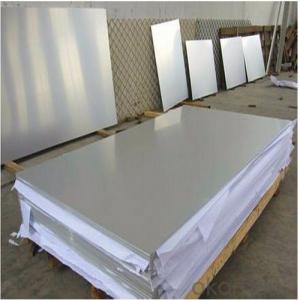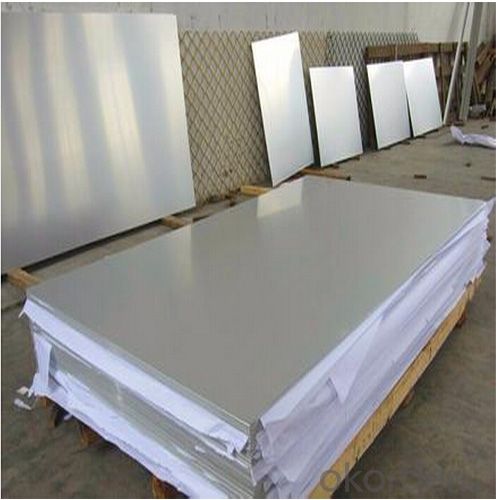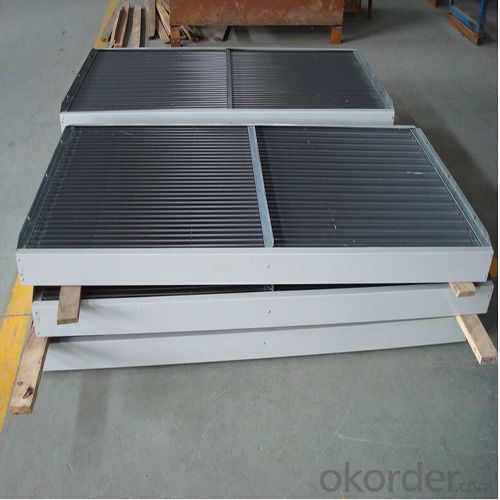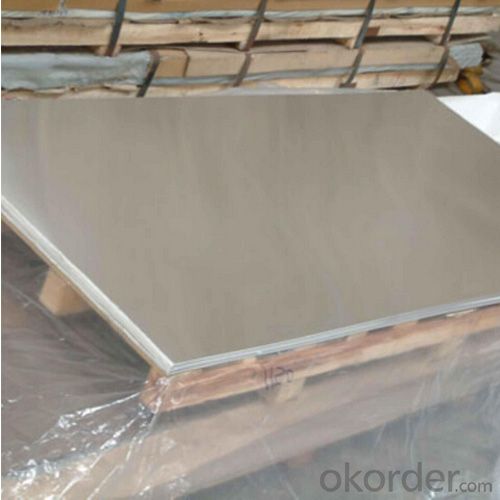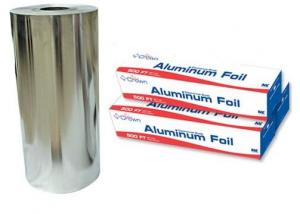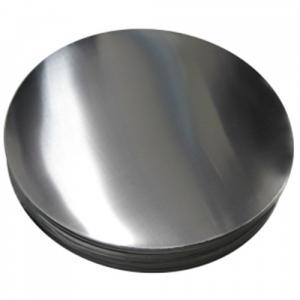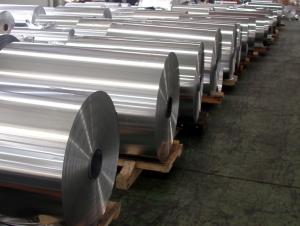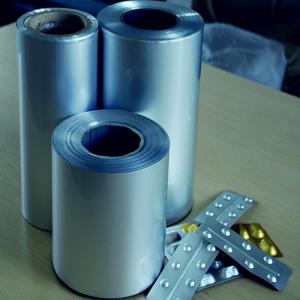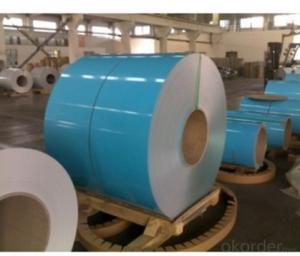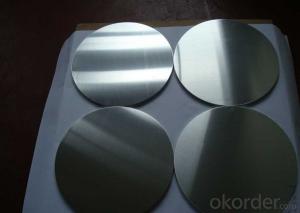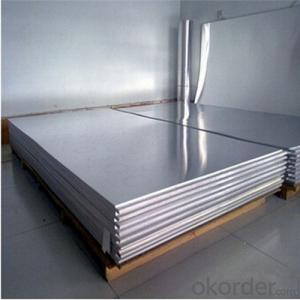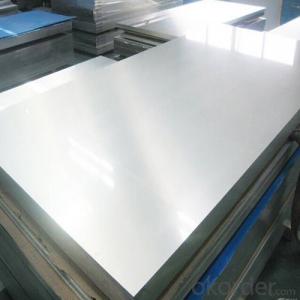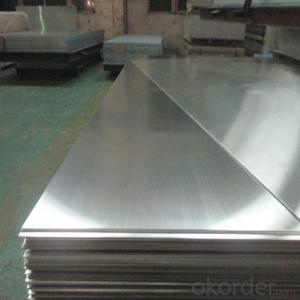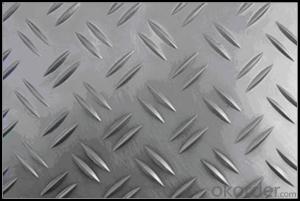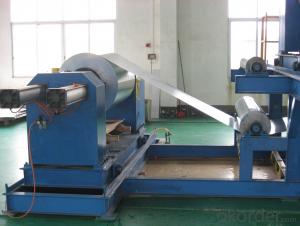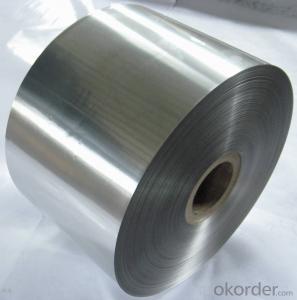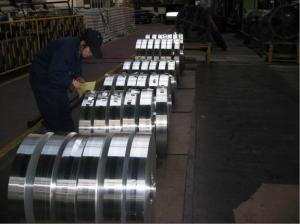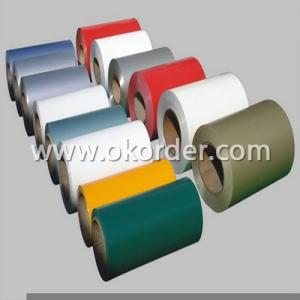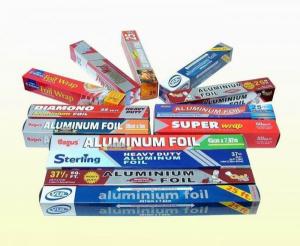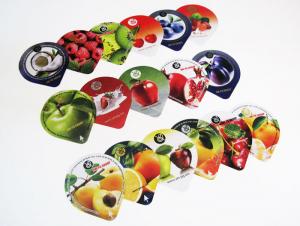High Quality Aluminum Plate Alloy 5052
- Loading Port:
- Shanghai
- Payment Terms:
- TT OR LC
- Min Order Qty:
- 5 m.t
- Supply Capability:
- 10000 m.t/month
OKorder Service Pledge
OKorder Financial Service
You Might Also Like
Specification
1.Structure of Aluminium Plate Alloy 5052 Description:
Aluminium Plate Alloy 5052 also name Al-Mg alloy. Since there are 3-5% magnesium in this alloy.The main features are low density, high tensile strength, high elongation, good resistance to good performance, good welding performance, good fatigue strength, heat treatment, anodized, can improve the strength of cold processing. In the same area, the weight of Al Mg alloy is lower than that of other series.
2.Main Features of Aluminium Plate Alloy 5052:
PVC Protect Film
Waterproof paper
High Quality
Competitive Price
3. Aluminium Plate Alloy 5052 Images:
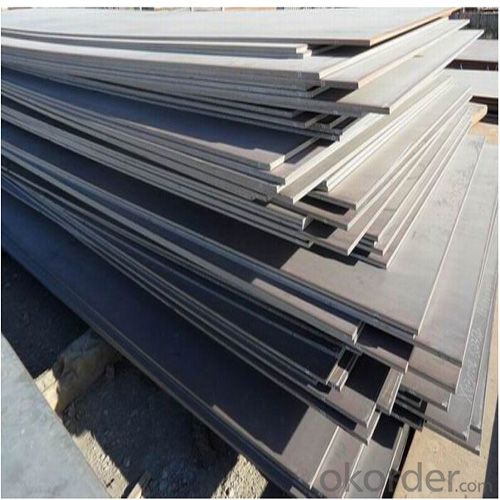
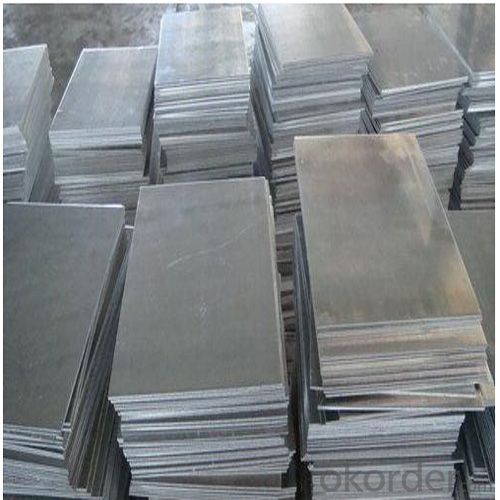
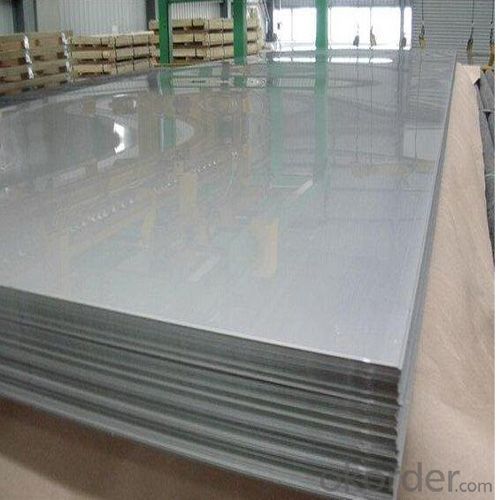
4. Aluminium Plate Alloy 5052 Specification:
Standard | GB/T3190-2008, GB/T3880-2006, ASTM B209, JIS H4000-2006 .etc |
Thickness | 0.2-200mm aluminium 5050 H38 |
Width | 1250mm 1000mm or as your requirements |
Length | 3000mm 5800mm or as your requirements |
MOQ | 5 Ton |
Package | Standard export package, by wooden box or as require |
5.FAQ
Q1.How long have you been in this product?
A1:More than 10 years.
Q2. What's the minium quantity(MOQ)?
A2. 5 Metric tons
Q3. How long is shipping time?
A3. 7 (ready-made products)-25 days(OEM)
Q4. How do you guarantee the quality?
A4. 1. Cooperating and Exchaning experience with sevral quoted aluminum companies
2. Japanese and Swiss production line and skilled works (regular training and testing)
3. more than 10 years production experience.
Q5. Do you have after sale service?
A5. Yes. Any quality problem occurs within one year, pls take photoes,we will be responsible.
- Q: Is it possible to recycle aluminum within the context of car battery recycling facilities?
- <p>Yes, aluminum can be recycled in a car battery recycling facility. Car batteries contain aluminum components, and recycling facilities are equipped to separate and recycle aluminum from other materials. The process typically involves disassembling the batteries, separating the aluminum casings from the lead acid, and then melting the aluminum for reuse. This not only conserves resources but also reduces the environmental impact of battery waste.</p>
- Q: How can we improve the efficiency and effectiveness of aluminum recycling?
- <p>Yes, there are several ways to recycle aluminum more efficiently and effectively. First, increase consumer awareness about the benefits of recycling aluminum and the importance of proper sorting. Second, invest in advanced recycling technologies that can process aluminum more quickly and with less waste. Third, collaborate with manufacturers to design products that are easier to recycle and made from more recycled content. Lastly, improve collection systems to ensure a higher percentage of aluminum waste is captured and recycled. These steps can significantly boost aluminum recycling rates and sustainability.</p>
- Q: Explain the natural relationship between aluminum and magnesium, focusing on their abundance and reactivity in the Earth's crust.
- <p>Aluminum and magnesium are both abundant elements in the Earth's crust, with aluminum being the most abundant metal and magnesium being the eighth most abundant element overall. They are often found in close association within the same minerals, such as in aluminosilicates and some carbonates. Both elements are highly reactive, forming compounds readily with oxygen to create oxides and silicates. However, they differ in their reactivity with water; aluminum forms a protective oxide layer that prevents further reaction, while magnesium reacts more readily with water to form magnesium hydroxide. This difference in reactivity influences their distribution and the types of compounds they form in nature.</p>
- Q: Is there any health risk associated with using pure aluminum cookware?
- <p>Using pure aluminum cooking utensils is generally considered safe for most people. However, there are some concerns regarding the potential for aluminum to leach into food, especially at high temperatures or with acidic foods. While the health risks are still a subject of debate, it's recommended to use aluminum cookware with a protective coating or opt for utensils made from other materials like stainless steel or cast iron for long-term health considerations.</p>
- Q: This question asks for examples of how recycled aluminum can be utilized.
- <p>Recycled aluminum has numerous applications, including the manufacturing of beverage cans, automotive parts, construction materials, and electronic components. It is also used in the production of aluminum foil, packaging materials, and various household items. Recycled aluminum is valued for its durability, lightweight properties, and energy efficiency in production, making it an environmentally friendly choice for many industries.</p>
- Q: This question asks about the impact of aluminum on human health when it is ingested through food packaged in aluminum containers.
- <p>Aluminum is a common element found in the environment, and it is naturally present in small amounts in many foods. When food is packaged in aluminum, there is a possibility of trace amounts of aluminum leaching into the food, particularly in acidic foods. While the human body can handle small amounts of aluminum without harm, excessive intake over a long period may lead to potential health concerns. Aluminum has been associated with neurological disorders, although the evidence is not conclusive. It's important to note that the risk is generally low, as the body does not absorb a significant amount of aluminum from food or packaging. However, it is always recommended to follow food safety guidelines and use packaging materials that are deemed safe for food contact.</p>
- Q: This question asks about the consequences of corrosion on aluminum, including how it affects the material's properties and performance.
- <p>Corrosion on aluminum can lead to a loss of structural integrity, reduced strength, and increased brittleness. It can cause pitting, which is localized corrosion that leads to the formation of small holes or cavities on the surface. Over time, this can lead to material failure. Corrosion can also alter the appearance of aluminum, causing discoloration and a rough texture. In extreme cases, it can lead to the complete degradation of the aluminum, resulting in the loss of the material's functionality. Proper maintenance, such as applying protective coatings or using corrosion-resistant aluminum alloys, can mitigate these effects.</p>
- Q: Describe the reaction of aluminum with acids and bases.
- <p>Aluminum reacts differently with acids and bases. With acids, aluminum undergoes a redox reaction where it loses electrons and forms Al^3+ ions. This reaction is exothermic and releases hydrogen gas. The general reaction with a non-oxidizing acid like hydrochloric acid is: 2Al + 6HCl 鈫?2AlCl鈧?+ 3H鈧? In the presence of a strong base, aluminum reacts with water to form aluminate ions and hydrogen gas, a process known as an alkaline hydrolysis. The reaction can be represented as: 2Al + 2OH鈦?+ 6H鈧侽 鈫?2Al(OH)鈧勨伝 + 3H鈧?</p>
- Q: This question asks for a brief overview of the characteristics or qualities of aluminum nitride, a chemical compound.
- <p>Aluminum nitride (AlN) is a covalent, ceramic material known for its exceptional properties. It has a high thermal conductivity, which is about two-thirds that of copper, making it useful in electronics for heat dissipation. It's also an electrical insulator, exhibiting high electrical resistivity. Aluminum nitride is characterized by its high thermal stability, resistance to thermal shock, and excellent mechanical strength. It's chemically inert, resistant to most acids and alkalis, and has a high melting point of approximately 2200掳C. These properties make it suitable for applications in high-temperature electronics, as a substrate for semiconductor devices, and in the automotive industry for heat sinks and other heat management components.</p>
- Q: Is it possible to recycle aluminum in a landfill setting?
- <p>Aluminum can be recycled, but not in a landfill. Landfills are not designed for recycling; they are for waste disposal. Aluminum recycling typically occurs at specialized facilities where the metal is sorted, cleaned, and processed. Landfills can contaminate aluminum with other materials, making it unsuitable for recycling. Proper recycling of aluminum conserves resources and energy, and it's crucial to recycle aluminum through appropriate channels rather than disposing of it in landfills.</p>
Send your message to us
High Quality Aluminum Plate Alloy 5052
- Loading Port:
- Shanghai
- Payment Terms:
- TT OR LC
- Min Order Qty:
- 5 m.t
- Supply Capability:
- 10000 m.t/month
OKorder Service Pledge
OKorder Financial Service
Similar products
Hot products
Hot Searches
Related keywords
